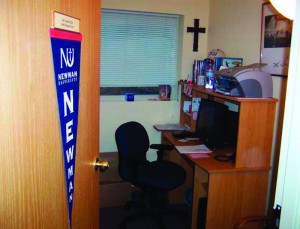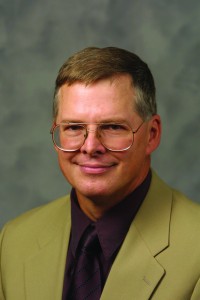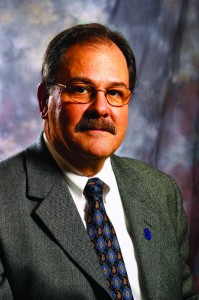Colorado Springs MSW program celebrates 10 years of growth
In 2004, Michael Smith, Ph.D. and Mike Duxler, Ph.D. traveled to Colorado Springs, Colo., several times to meet with directors of local social service agencies.
Smith, who was then dean of the Newman University School of Applied Social Sciences and director of the Social Work Program, and Duxler, an associate professor of social work, were surprised at what they learned.
“Many told them, essentially, ‘I have been hiring psychologists, BSWs, and other professionals, as there are no MSWs available,’” said John Moragues, MSSW, associate professor of social work and coordinator of the Newman Colorado Springs Center. “‘Find me an MSW social worker and I will hire them.’”
Rather than find MSW social workers, Smith and Duxler decided to develop them. In fall 2005, the Newman Master of Social Work program, the first MSW program in Colorado Springs, was born.
Today, as the program celebrates its 10th anniversary, 284 people have earned their MSW degrees through the Colorado Springs Center, with most working in the area.
And the program shows no signs of slowing down.
‘We provided the right solution’
Smith and Duxler initially came to Colorado because they believed the Newman social work program, which was already operating in Wichita and the Dodge City/Garden City areas, was ready for expansion.
In addition to talking with social service leaders, Smith and Duxler met with Michael Sheridan, Bishop of Colorado Springs, and Kurt Bartley, director of Catholic Charities in Colorado Springs, who helped create the Newman program.
The program grew quickly from its initial enrollment of 22 students. In 2006, enrollment jumped to 61, and 20 students earned their degrees. The following year, 73 students enrolled and 31 graduated. Today, enrollment has reached 103, and 32 students are expected to graduate in May 2016.
Moragues attributes this growth to several factors.
“For one, the original analysis was correct: the market for an MSW program was ripe, and we provided the right solution,” Moragues said.
He added that the program focused recruiting efforts on three key groups: individuals recruited from local churches, current employees of social service agencies who did not have an MSW degree, and service members and their spouses connected with the five military installations in the area.
The center’s field education program also contributed to the growth, Moragues said. The Newman program now has more than 130 field placement sites for students to do the clinical portion of the program. Moragues said that many agencies now actively seek Newman students for placement.
Moragues also credited the quality of the faculty and staff.
“I believe we have a uniquely positive group of people who communicate and interact with each other in a very functional, pleasant and happy manner,” Moragues said.
Moragues said key faculty members have included Sue Gardner, MSW, Barry Koch, Ph.D., Terrie Cox Pauly, LCSW, and the many Wichita-based faculty who made significant contributions to the program’s success.
Newman personnel also maintain good relationships with Colorado State University-Pueblo, which offers a BSW program that is the primary feeder for Newman. Additionally, Moragues points to improvements in the program such as a student counseling program, and a “Celebration of Graduation” ceremony in Colorado Springs each spring that he created several years ago.
“The celebration allows graduates to be recognized for their accomplishments without having to make a 16-hour
round trip and pay hotel costs to be in Wichita for Commencement,” Moragues said. Newman Provost Michael Austin, Ph.D. now comes each year to officiate and confer degrees. Director of Alumni Relations Sarah Cundiff ’86, ’90, ’15 also attends.
Growing pains
While the continuing growth and improvement of the program are welcome, they did create one problem: a lack of space.
When the program launched in 2005, faculty and staff occupied one room at The Mercy

This small office at The Mercy Center was the original headquarters for the Colorado Springs Center. It was shared by program coordinator John Moragues and two other people in 2005. Moragues said he keeps the photo “as a reminder of our very humble beginnings.”
Center, a Catholic holistic healing facility in the city. Faculty taught Friday classes in the basement of the Colorado Springs Cathedral, and weekend classes in two conference rooms of the diocesan pastoral center. In January 2006, Newman rented the first floor of a building at 2120 Hollow Brook Drive, where the program is still based. Newman later occupied about half of the building’s second floor, but still needed more space.
After looking unsuccessfully for larger quarters that were relatively affordable, Moragues and other Newman officials took a new tack. They negotiated a new lease with the building owner that includes their old space, as well as additional space on the second floor and new construction of two large classrooms, an improved library space, two faculty office areas, and expanded space for a student lounge and study areas. The expanded and remodeled facility opened at the beginning of the fall 2015 semester.
Moragues said he expects the growth to continue, and projects that enrollment and revenue will increase 10 percent annually through 2019. Although he will not be around to see that growth – he plans to retire next year – he remains excited about the program’s possibilities.
“We continue to develop relationships with new field placement agencies, and the frequent referrals from our field instructors, students and graduates will continue to provide a consistent stream of new inquiries and applicants,” he said. “We are now well known in the local community, and many university programs and local agencies strongly recommend our program because of the high quality and relatively modest cost. As far as I can see, the future for the Newman University School of Social Work looks very positive in Colorado.”
For more information about the Colorado Springs MSW program visit http://go.newmanu.edu/colorado



